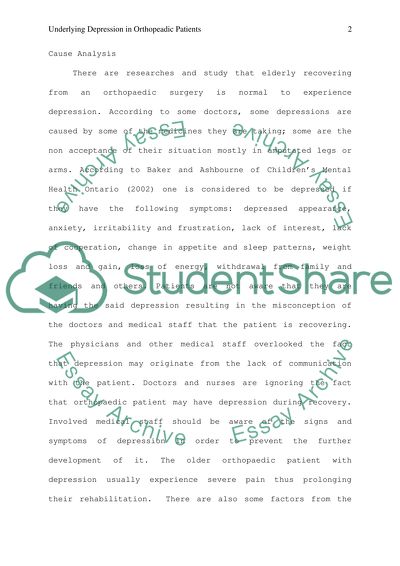Cite this document
(“Underlying depression in orthopedic patients Essay”, n.d.)
Underlying depression in orthopedic patients Essay. Retrieved from https://studentshare.org/nursing/1511935-underlying-depression-in-orthopedic-patients
Underlying depression in orthopedic patients Essay. Retrieved from https://studentshare.org/nursing/1511935-underlying-depression-in-orthopedic-patients
(Underlying Depression in Orthopedic Patients Essay)
Underlying Depression in Orthopedic Patients Essay. https://studentshare.org/nursing/1511935-underlying-depression-in-orthopedic-patients.
Underlying Depression in Orthopedic Patients Essay. https://studentshare.org/nursing/1511935-underlying-depression-in-orthopedic-patients.
“Underlying Depression in Orthopedic Patients Essay”, n.d. https://studentshare.org/nursing/1511935-underlying-depression-in-orthopedic-patients.


